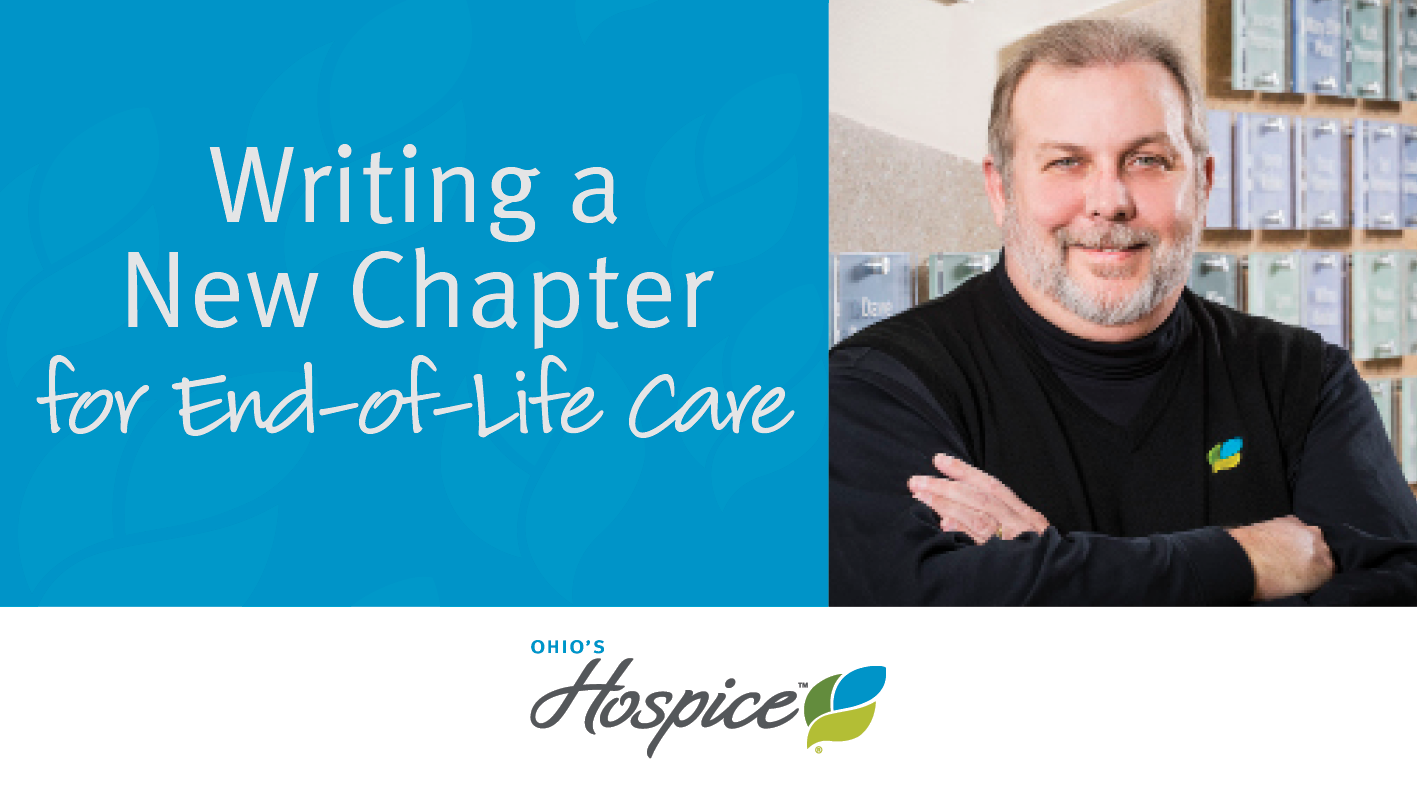
Writing A New Chapter for End-of-Life Care
We’re living longer these days, and that’s certainly a good thing. Thanks to advances in medicine and technology, chronic diseases are more manageable. We are living with them, and even once terminal illnesses, for longer periods in our lives.
This is changing what it means to give end-of-life care. And it’s changing what “end of life” even means.
That’s going to have a huge impact: not just on hospice care, but on the entire healthcare ecosystem supporting an aging population.
The right time to start hospice will continue to evolve.
What’s one big impact on hospice care?
The number one complaint we hear from families is a bittersweet one: “I wish we would’ve done this sooner.”
As a not-for-profit hospice, we dedicate resources to the delivery of extraordinary care to patients. I’m proud of all the resources we make available for people: doctors, nurses, home health aides, respiratory therapists, music therapists, chaplains… We believe this is what sets us apart from other hospices. But we’re also aware this is a lot to take in, especially when you consider the median stay is just 11 days.
Yes, 11 days.
People are often surprised by that number. And they’re surprised to learn that people put off hospice, especially when it can make such a difference in quality of care during such a critical time.
So now is the time to help people rethink when it’s time for hospice. (That includes payers too, both private and Medicare.) Palliative care, even for terminal illnesses, can actually extend people’s lives.
We need to be able to reach patients and their families early enough that we can bring all those resources to bear. This is so important because it’s not just one life that’s at stake. Families go through so much when caring for a critically-ill loved one. Hospice helps them take care of themselves, too.
Let’s be clear: we know what the outcome will be.
We can’t change that, and we can’t take that pain of loss away completely for families. But we can make sure patients and families get more quality time together. And, maybe most important of all, more control over the end-of-life experience.
Seeing a peaceful death, while still sad, can also be moving, encouraging, even transcendent. And that can make all the difference as families go on living.
Every care situation is unique.
It’s great to see the healthcare industry looking more broadly at how best to help a patient live safely wherever they want to call home. We’re already seeing a convergence among Medicare segments that were previously more separate—like hospice and nursing homes.
We need other changes, too. We need healthcare providers and payers to become more open to how people can make the most of the time they have.
It’s impossible to separate earlier access to services from another impact on the future of hospice: quality of life.
True quality of life means meeting patients where they are in their end-of-life journey, and it will also take a continued push for payment mechanisms that reflect this goal.
People continue to demand—and deserve—better.
It’s important to recognize that we’re not alone in healthcare when we look ahead and see big changes on the horizon. Name an industry that isn’t trying to do more in the face of changing revenue streams and new consumer expectations.
But this is especially true in healthcare, which has lagged behind other sectors when it comes to delivering greater and more convenient services at a reasonable price. Technology has changed consumer expectations…and patient expectations, too.
And you know what? Good. Why would we want a healthcare system that doesn’t deliver great patient experiences?
Everyone at our organization has heard me say that there’s almost no rule or regulation we’ll violate by being kind and compassionate. We research trends, plan for the future and innovate where we can, but at the end of the day, it’s kindness and compassion that matter most.
That’s the philosophy I want to carry with us into the future, whatever changes come to pass. Because the when and how of hospice might change, but never the why.
Author Profile
Latest entries
 ExpertiseFebruary 20, 2018The Three Words That Will Change Your Life
ExpertiseFebruary 20, 2018The Three Words That Will Change Your Life Thought LeadershipJanuary 17, 2018Writing A New Chapter for End-of-Life Care
Thought LeadershipJanuary 17, 2018Writing A New Chapter for End-of-Life Care News and UpdatesDecember 8, 2017To Lead is to Serve
News and UpdatesDecember 8, 2017To Lead is to Serve ExpertiseNovember 28, 2017Why Choosing a Not-for-Profit Hospice Makes a Difference in Patient Care
ExpertiseNovember 28, 2017Why Choosing a Not-for-Profit Hospice Makes a Difference in Patient Care

